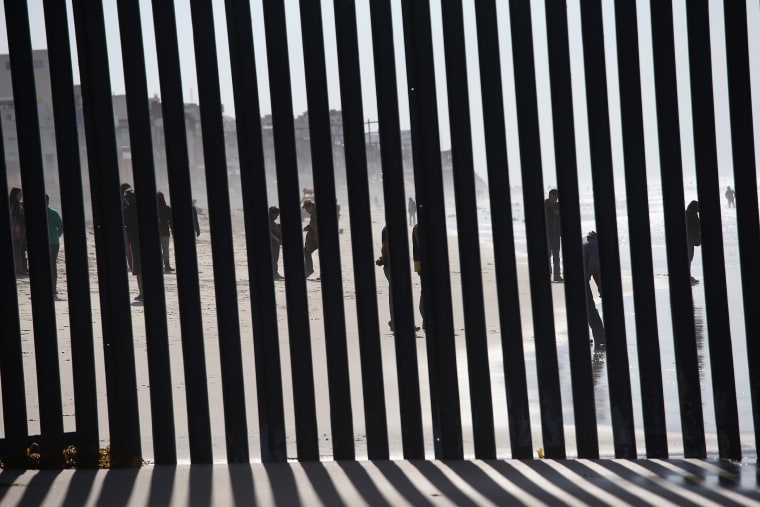A United States delegation to the U.N. faced blistering criticism from an international committee in Geneva over a slew of human rights concerns on Friday, including stand your ground laws, the death penalty, voting rights and racial disparities in education.
“What we are finding is that the U.S. government is out of step with its obligations under international human rights law,” said Ejim Dike, executive director of the U.S. Human Rights Network, who attended the questioning before the U.N.’s Human Rights Committee. “I would say the U.S. government response so far has not been adequate.”
Over the course of two days, members of the human rights committee grilled the 32-person delegation from the United States over a long list of issues highlighted by an umbrella group of human and civil rights groups and non-governmental organizations. The questioning was part of the Human Rights Committees’ periodic review of compliance under the International Covenant on Civil and Political Rights, a pact signed by 167 countries in 1976.
Groups including the Leadership Conference on Civil and Human Rights, the NAACP, the Dream Defenders and a host of other organizations sent representatives to Geneva as lobbyists and observers. Many of the groups filed a joint submission ahead of the review detailing issues and concerns. Those concerns included abuses by American border patrol agents, the federal government’s inability to tamp down zero-tolerance school discipline policies and police brutality.
“We’re not meeting international human rights standards and most people in the United States are under the impression that our laws meet human rights standards,” Dike said. “But we are not exceptional and the U.S. government should be held to the same standard as the rest of the world when it comes to international human rights.”
Dike said the review process, in which the delegation goes on record with the U.S.’s position, “gives us an additional avenue to try to push the government on issues that we care about.”
Civil and human rights groups have used the U.N. to pressure the government for more than a half-century, raising a wide range of issues from the lynching of African-Americans to the struggle for voting rights. Earlier this year, the U.N. called on federal officials to demonstrate compliance with international treatise by examining the discriminatory impact of policies like stop and frisk, a controversial practice implemented by the New York Police Department that randomly targeted mostly minority men in poor communities.
June Zeitlin, director of human rights policy for the Leadership Conference on Civil and Human Rights, said members of the delegation attempted to answer the committee’s questions as wholly and directly as possible, but did little to lay out any plans of action moving forward.
Zeitlin said that chief among her organization's concerns are disparities in funding to low-income schools and to schools with majority-minority populations, and school discipline policies. Attorney Gen. Eric Holder and U.S. Department of Education officials recently announced new guidelines to school districts on the use of so-called zero-tolerance discipline policies that disproportionately impact minority students.
When questioned about the zero-tolerance policies, the U.S. delegation talked a lot about what the federal government had already done, but little about moving forward.
“We were not satisfied because it wasn’t really forward looking,” said Zeitlin. “We were hoping that they would detail more of an action plan. They basically recited what they are doing already, which we already know. It’s a step in the right direction, but we believe much more could be done.”
A number of committee members repeatedly referenced cases that advocates say point to America’s glaring disparities in criminal justice, the death penalty and the implementation of gun laws. Those names include Trayvon Martin and Jordan Davis, both unarmed black teenagers who were killed by white men in Florida. Martin’s killer, George Zimmerman, claimed he shot the teen in self-defense during a struggle. Zimmerman was found not-guilty of second-degree murder and related charges last summer. Michael Dunn, Davis’s killer, fired into an SUV carrying Davis and three friends at a gas station in Jacksonville, Fla., after an argument over loud music. Davis was struck and killed. Dunn was recently convicted of three counts of attempted murder for firing at Davis’ friends. But the jury was hung on whether or not Dunn killed Davis in self-defense. Dunn claimed that he saw a gun before firing.
Florida’s stand your ground laws, which expand the legal use of lethal force by citizens, became a central theme in both cases. The killings of Martin in 2012 and Davis last year sparked outrage and protest over the laws, which critics say fuels vigilantism and race-based violence. Committee member Walter Kälin of Switzerland said the laws appear to be incompatible with articles of the ICCPR.
Another name brought multiple times was Glenn Ford, a black man who spent 30 years on Louisiana’s death row before being exonerated and released this week.
“One hundred and forty-four cases of people wrongfully convicted to death is a staggering number,” Kälin said, referencing a list of 144 death row inmates who had later been found innocent, according to Death Penalty Information Center statistics.
